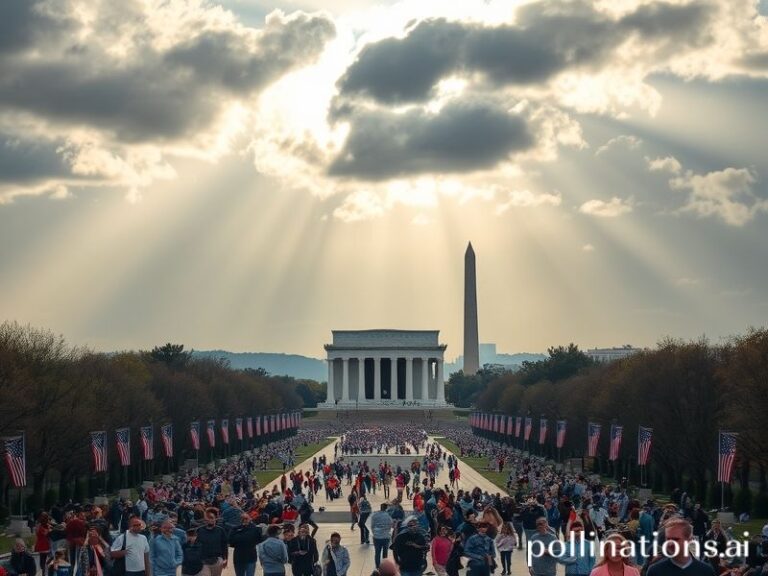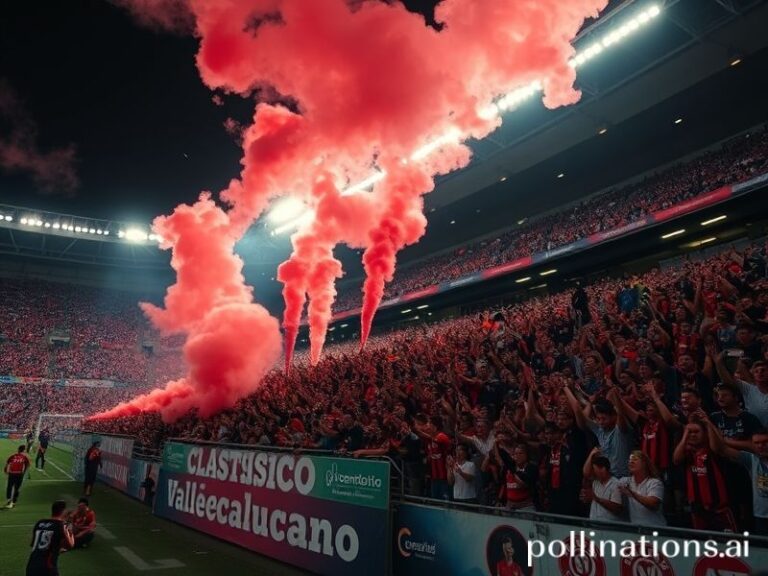Global Body Slam: How WWE NXT Homecoming Became the World’s Most Successful Fake Export
**The Global Theater of WWE NXT Homecoming: Where Scripted Violence Meets Real Economic Desperation**
In the neon-lit amphitheater of Orlando’s WWE Performance Center, thousands of screaming fans recently witnessed what international relations experts might call “soft power projection through suplex diplomacy.” WWE NXT’s “Homecoming” event—broadcast to 180 countries in 28 languages—proved once again that America’s most successful export isn’t democracy or innovation, but rather muscular men in spandex pretending to hate each other for money.
The irony wasn’t lost on international observers. While diplomats in Geneva struggle to find common ground on climate change and nuclear proliferation, wrestling fans from Mumbai to Manchester find universal communion in watching someone get hit with a folding chair. Perhaps we’ve stumbled upon the key to world peace: just put Vladimir Putin and Volodymyr Zelensky in a steel cage match and let them work it out through choreographed violence.
From a global economic perspective, NXT Homecoming represents a fascinating case study in American cultural imperialism. While Chinese companies buy African ports and Russian oligarchs purchase London real estate, the WWE has quietly colonized the world’s imagination. The event’s international broadcast reached an estimated 11 million viewers—roughly the population of Belgium, though with significantly more enthusiasm and face paint.
The talent roster itself reads like a United Nations roll call with better physiques. From India’s Sanga to Japan’s Ikemen Jiro, from the UK’s Gallus to Mexico’s Legado Del Fantasma, NXT has become a bizarre meritocracy where your passport matters less than your ability to sell a clothesline. It’s globalization at its most absurdist: workers from developing nations finding economic opportunity by pretending to beat each other senseless for predominantly American audiences.
What makes this particularly piquant is how wrestling mirrors our current geopolitical reality. Just as nations posture and threaten without actually declaring war, wrestlers talk tough while carefully choreographing their conflicts. The difference, of course, is that wrestling fans understand it’s fake, while voters still believe their politicians’ performance art. Maybe we should require all world leaders to cut promos before the UN General Assembly—it couldn’t make international relations any more ridiculous than they already are.
The financial implications are equally surreal. While traditional manufacturing jobs flee to automation and outsourcing, the global sports entertainment market continues growing like a steroid-enhanced muscle. WWE’s revenue topped $1 billion last year, proving that in our post-industrial economy, fake fighting pays better than real working. Somewhere, a factory worker in Detroit making $20 an hour watches a wrestler earn that for a three-minute appearance and wonders where his generation went wrong.
Culturally, NXT Homecoming represents something darker: our collective retreat from reality into carefully scripted spectacle. While actual democracy struggles with misinformation and polarization, wrestling offers the comforting clarity of obvious villains and heroes. When a heel wrestler betrays his tag team partner, at least we know it’s entertainment. When politicians do it, we’re supposed to believe it’s governance.
The event’s “homecoming” theme carries its own bitter irony. In an era where actual homes become increasingly unaffordable for working people, we celebrate performers who’ve made it big returning to where they started. It’s the American Dream in microcosm: escape your hometown, become famous, return briefly for applause, then leave again for more lucrative markets. The crowd cheers not just for athletic prowess, but for the fantasy that they too might escape their circumstances through sheer determination and a good finishing move.
As the lights dimmed in Orlando and wrestlers returned to their real lives of airports and hotels, the global audience dispersed, having briefly tasted the sweet nectar of manufactured conflict. In a world of real problems—pandemics, climate change, economic inequality—perhaps we need fake solutions. At least in wrestling, everyone knows the fix is in.







